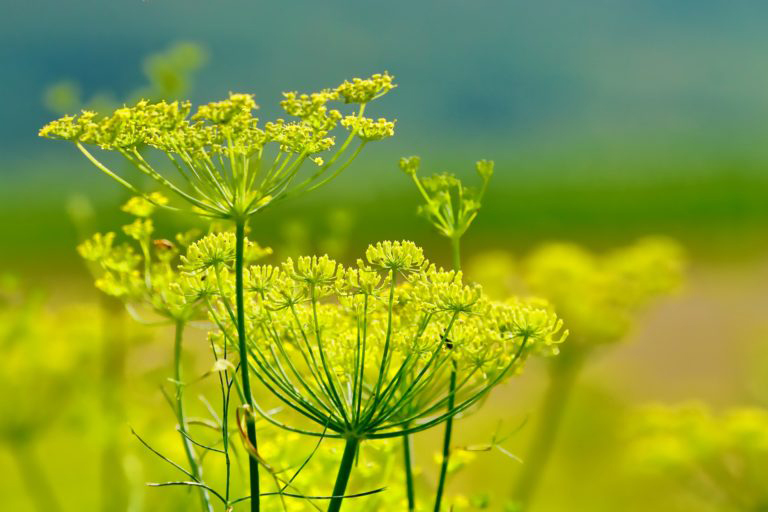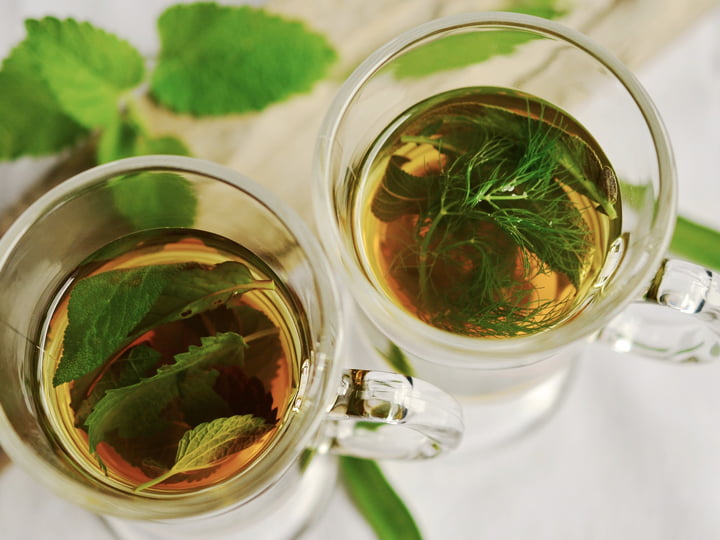Properties and benefits of Fennel

Fennel (Foeniculum vulgare Mill) belongs to the Umbrelliferae or Apiaceae family and is a truly precious vegetable: it is delicious, purifies the body from excess toxins, eliminates air from the stomach and intestine, and has very few calories. Rich in vitamins, it also helps to regulate the level of female hormones.
Its typical flavour is due to the presence of anethole, the essence used to prepare famous liquids, like Sambuca or pastis.
Originally, from Asia Minor and the Mediterranean area, the fennel plant has been known and used by humans since Ancient Egyptian and Roman times, as well as by Ancient Indian and Chinese civilisations, due to its flavour and aromatic properties. Today fennel is grown in almost all countries worldwide, and thanks to greenhouse farming, it is always available all year round.

Wild fennel flowers are harvested in Italy as soon as they open, from mid-August to late September. It is wrongly believed that there are "male" (rounder shaped) and "female" fennel plants (flatter in shape). The truth is that plant shape largely depends on the variety.
Nutritional properties
The most significant nutritional properties of fennel are that it is extremely low in calories, free from fat and rich in insoluble fibres. It is bursting with minerals like potassium, copper, phosphorous, calcium, zinc and magnesium, and also contains a good quantity of vitamin C, folates and a discrete amount of flavonoids.
Health benefits
Used by popular and alternative medicine, fennel has also roused the interest of modern medicine, due to its beneficial properties and in virtue of the plant as a whole.
A series of studies has shown that it effectively controls numerous disorders: abdominal pain, irritable bowl, flatulence, arthritis, conjunctivitis, insomnia and fever.
Let's take a closer look at the beneficial properties of fennel.
- It stimulates diuresis. It has a significant diuretic effect. By stimulating diuresis, it also encourages the expulsion of urinary sodium. This is why fennel could be a good ally in the fight against high pressure.
- It protects the cardiovascular system. Some studies have shown that certain substances contained in fennel can be used to fight platelet aggregation. In addition to anti-hypertensive properties, fennel has also been attributed with antithrombotic effects.
- Anti-cholesterol. It has been observed that the watery extract of fennel causes a significant reduction of "bad" cholesterol (LDL), triglycerides and an increase of good cholesterol (HDL).
- It protects the liver. Essential oils extracted from seeds have shown to trigger a powerful hepatoprotective response. It helps digestion and is a remedy for colics.
- Digestive action. Essential oils of fennel reduce the production of intestinal gas as they prevent the fermentation of some sugars. Taken alone, but also in association with other medicinal plants, it is recommended in the treatment of gastrointestinal spasms, some forms of chronic colic and to fight against abdominal pain, often associated with the use of laxatives.
Lastly, fennel fruit protects the stomach mucosa from lesions caused by ethanol (therefore from the use or abuse of alcoholic substances). - Oestrogenic effects. Rich in flavonoids, which reinforce the immune system and fight free radicals, and phyto-oestrogens (substances that are similar to oestrogen hormones produced by the body), fennel is highly useful in regulating female hormone levels and consequently the menstrual cycle too. It alleviates menopausal symptoms, like hot flashes and insomnia, with the administration of extracts containing fennel. It stimulates breast milk production, thanks to its anethole content, and above all contributes towards improving its flavour.
- It fights hirsutism, namely the excessive growth of masculine hairs on women who otherwise have a normal ovarian cycle and normal levels of masculine hormones, like testosterone. Some scientists have exploited the properties of fennel (which acts as a pro-oestrogenic agent), with the preparation of creams containing 1 and 2% of fennel extract to fight hyper-hirsutism in women.
- Antimicrobial, antiviral and antifungal. Thanks to a group of monoterpenes, it has an antimicrobial action and has also been proven to be effective against the Herpes and parainfluenza viruses. It has shown significant activity against fungi responsible for the alteration of food properties and quality, useful against Candida albicans, human candidoses and apparently also for the treatment of skin or mucosa inflammations of the respiratory tract or oral cavities.
- Expectorant. Fennel seeds stimulate ciliary motility in the respiratory system, thus encouraging the transport of foreign materials outwards. This suggests a possible use of fennel seeds for the treatment of bronchial or bronchopulmonary conditions, especially in particularly polluted areas. Fennel oils also appear to encourage the expulsion of mucus, bacteria and other foreign bodies.
- Calms anxiety. It has a significant anxiolytic action and therefore in the form of oils or concentrated extracts, it could be a natural alternative as a sedative or for disorders linked to anxiety.
Side effect
The use of fennel, even in large doses, is not harmful in any way. Some hypersensitive subjects may show signs of allergy, with an itchy mouth, tongue and gums. This kind of sensitivity is most likely to occur with essential oil, or in subjects who are allergic to apples. The use of essential oil of fennel is not recommended in paediatric subjects.
Instructions
Fennel can be enjoyed daily, in salads, as a snack, stewed, blanched or grilled. It is also perfect for the preparation of herbal teas or alcoholic beverages.
In the kitchen
Fennel features raw or cooked in a variety of dishes.
- The head can be eaten raw in salads, boiled and au gratin in the oven with béchamel. It can also be added to numerous preparations, from fish based first courses to soups and stews;
- The flowers are used to flavour oven baked or pan fried mushrooms, olives in brine and pork;
- The seeds can be used to flavour homemade desserts, hot wine or herbal teas;
- Fresh finely chopped leaves can be used to add flavour to soups, fish dishes, salads and cheeses.
Recipes with fennel:
Sliced and served with a simple dip as a starter, or in mains like fennel soup, second courses like baked salmon with fennels and sides like fennel au gratin.
Alternative uses
Mask for dark circles around eyes
A simple mask containing fennel and yoghurt: simply mix two spoons of yoghurt with a teaspoon of fennel seeds and one teaspoon of finely chopped fennel leaves. Apply the mask onto skin. Rinse with warm water after around 20 minutes, massaging all the while.
For those who suffer from allergens or with sensitive skin, consult your dermatologist before applying this mask.
Interesting facts
In Italian "lasciarsi infinocchiare" means to be cheated, taken in or fooled.
This is because in ancient times, dishonest tavern keepers would serve a slice of this vegetable to anyone wishing to purchase wine in barrels.
Fennel alters taste bud function. Indeed the flavours of this vegetable made even the poorest quality wines taste decent, making it easy to trick the customer into buying it!
What to wear
You can help yourself even further by wearing garments that improve hydration and the drainage of excess liquids both during the day (see functional slimming leggings or activewear) and by night (see draining pyjama).


